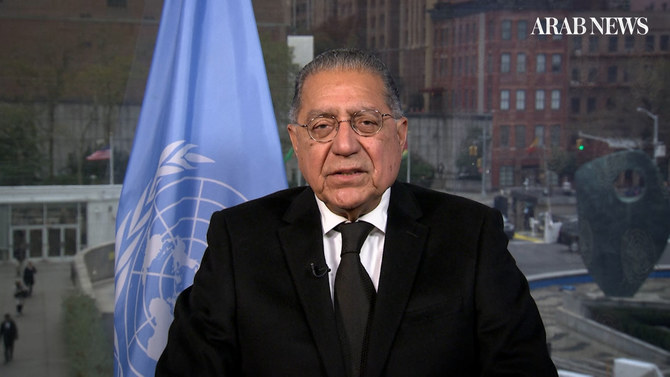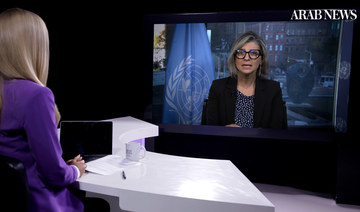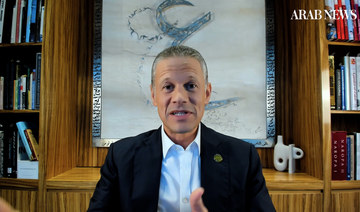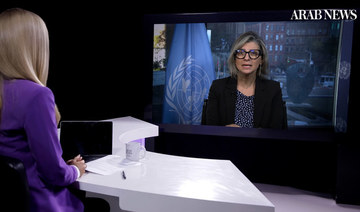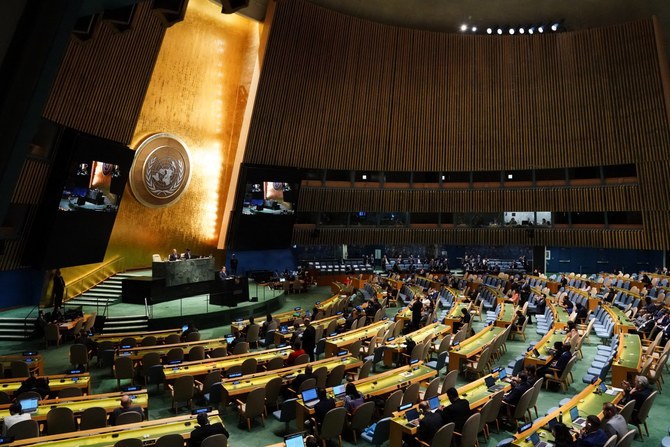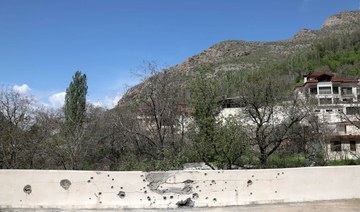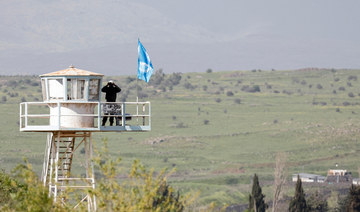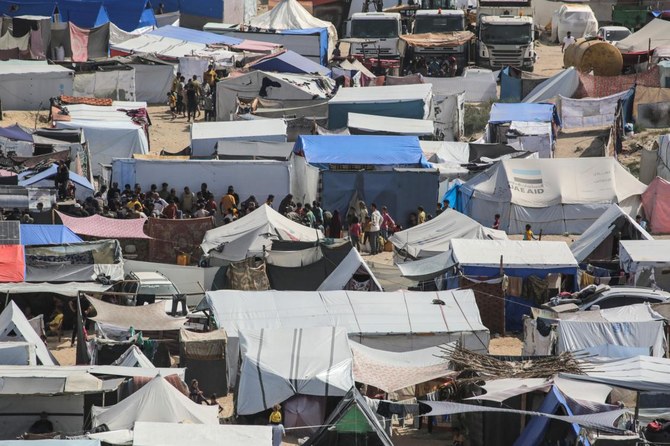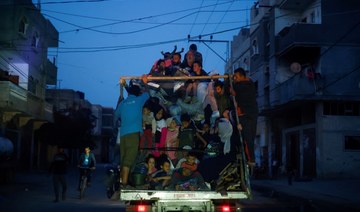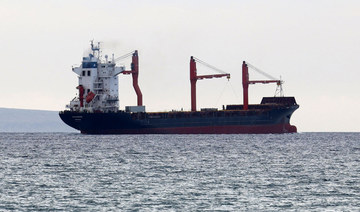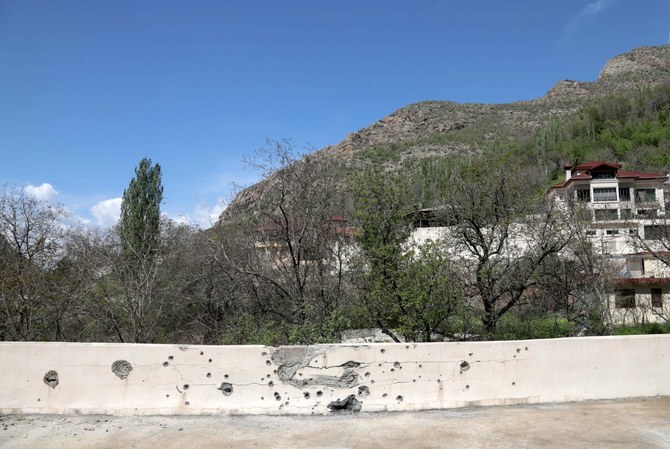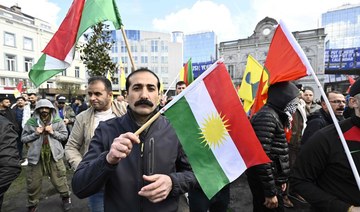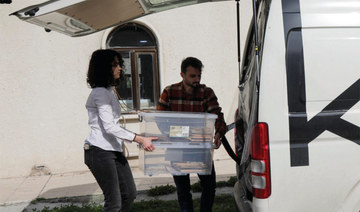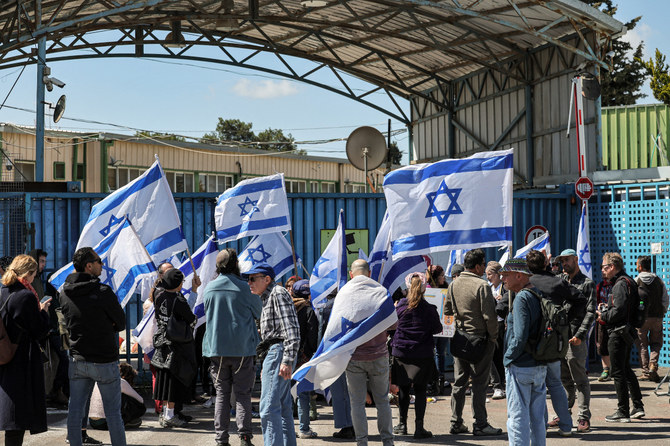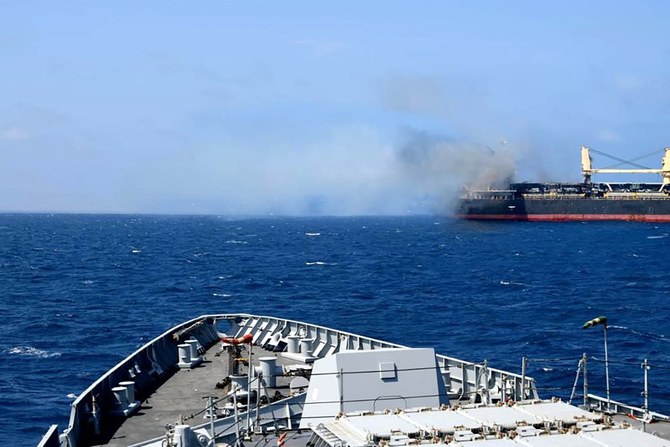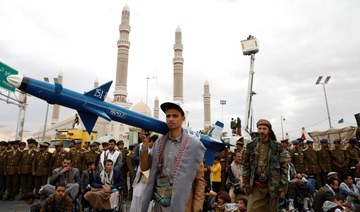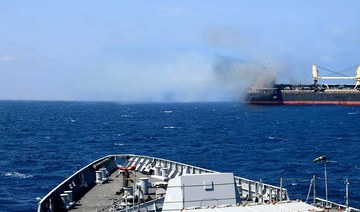DUBAI: Pakistan’s permanent representative to the UN has said Israel has been emboldened by the international order’s “double and triple standards,” which he considers to be the “root” of the crisis unfolding in the Middle East.
Reiterating his call for a ceasefire in Gaza, Munir Akram urged the international community to rectify the imbalance at the heart of the UN and in the application of international law.
“This is the nature of the world order in which we live,” he said on Arab News current-affairs show “Frankly Speaking,” adding: “There are double standards and there are triple standards, discrimination against some and discrimination for others. This is the root of our problems in the world we live in, these double standards.”

Munir Akram, permanent representative of Pakistan to the UN, on Frankly Speaking. (AN photo)
For Akram, faith in the potential of the global system of rules is not entirely lost, noting that the issue is not so much a lack of principles nor a lack of law — both international law and international humanitarian law, which govern the actions of combatants in war — but rather the lack of their “uniform” application.
“These rules should be applicable uniformly and universally to all,” he told “Frankly Speaking” host Katie Jensen. “But that isn’t the case. The Israelis unfortunately have this sense of impunity. They can go and assassinate people and then get away with it and yet claim when others do it, when they do something like what Hamas did, they’re terrorists.
“This double standard is the root cause of the weakness of the international order we have today. And it has to be rectified. People need justice. People need to be treated the same way on the basis of the same laws, the same principles that we all espouse.”

Munir Akram, permanent representative of Pakistan to the UN, speaks to Katie Jensen, host of Frankly Speaking. (AN photo)
Akram’s comments came as the death toll from Israel’s bombardment in Gaza rose to more than 8,500 people, including at least 3,500 children. Some officials have said one child has been killed every 10 seconds.
The veteran Pakistani diplomat has repeatedly called for a ceasefire, telling both Arab News and the UN Security Council that there is an immediate need not only for a cessation in hostilities but also for the provision of a humanitarian corridor and access into Gaza, and the rejection of any Palestinian displacement, either within the embattled territory or outside it.
“It’s obvious that what needs to happen is a ceasefire. We need to halt the hostilities, halt the aerial bombardment, the invasion of Gaza, the killing that’s taking place,” he said.
“And we saw that with the attack on the (Jabalia) refugee camp. This is unnecessary slaughter of civilians with whatever military objectives that may be.”

A picture taken from the Israeli side of the border with the Gaza Strip on November 2, 2023, shows smoke billowing during Israeli bombardment in the Gaza Strip, amid ongoing battles between Israel and the Palestinian Hamas movement. (AFP)
Akram asserted that even though international humanitarian law prohibits the targeting and killing of civilians, “that’s happening with impunity today, and certain powers are unable to agree to a ceasefire. This is mind boggling. It’s a violation of international law in the most visible and violent way. And I think the international community needs to stand up for the principles that we all espouse here at the United Nations.”
He also seconded the view of Francesca Albanese, the UN special rapporteur for Palestine who, interviewed on “Frankly Speaking” last week, said the right to defend does not apply to a country that is at the same time an occupying power.
“Absolutely. This is exactly what we’ve said in the Security Council. If you see the first statement which Pakistan made on this, when this conflict broke out, stated clearly that a power which is occupying another people does not, cannot, claim the right to self-defense against those people that it’s occupying,” Akram said.
“I think the law on this is absolutely clear. The demand and the claim made by Israel and its friends that it has the right to defend itself doesn’t apply, isn’t legally defensible in this situation.”
Akram has been blunt in arguing that the “original sin” in the Gaza conflict was not the Hamas attacks of Oct. 7 but rather the ongoing Israeli occupation of Palestinian lands, a position he staked out during a speech to the UN General Assembly that has since received a backlash from pro-Israel groups.

Palestinians search for survivors in the rubble of a building in the Nuseirat refugee camp in the central Gaza Strip on October 31, 2023, amid relentless Israeli bombardment of the Palestinian enclave (AFP)
Asked whether he maintained or had retracted this position, he was unfazed, saying: “No, this is the truth.”
He added: “I don’t take the truth back. I think it’s quite obvious to anybody with any sense of fairness that the problem has arisen because of Israel’s 50 years of occupation of Palestine, the murder and killing of Palestinians with impunity over these decades and, especially in recent years, we’ve seen the manner in which the Palestinians have been treated.
“With regard to the Israeli occupation, I think I’m absolutely confident in my view that when you push a people into a corner, when you suppress them and you kill their children, they’ll react. And this is what has happened.”
Opinion
This section contains relevant reference points, placed in (Opinion field)
Concerns about escalation continue to hover around the conflict, particularly with not only the influence of Iran through its proxy armies but also the positioning of several US aircraft carriers in the region.
“We’re facing the danger of an international crisis, and that’s another reason — apart from the humanitarian reasons of Palestinian children and women being killed — there’s also a strategic reason, and that’s the danger that this conflict could spread,” Akram said.
“This could have dangerous implications not only for the region but for the world as a whole when you have major powers become involved in a conflict. And the danger of that happening is palpable.”
Added to this are competing efforts in the UN Security Council from China, Russia and the US to push alternative resolutions. This has been most recently seen in the rejection by China and Russia of a US-backed draft resolution calling for a pause in fighting to allow humanitarian access, protection of civilians, and the prevention of arms flows to Hamas and other militant groups in the Gaza Strip.
What followed was a Russian draft calling for a humanitarian “ceasefire” and the withdrawal of Israel’s orders for Palestinians in Gaza to relocate to the south of the territory ahead of a ground invasion.

Israeli military vehicles move near Israel's border with the Gaza Strip on November 1, 2023 in southern Israel, amid ongoing battles between Israel and the Palestinian Hamas movement. (AFP)
Asked if Pakistan would be willing to get involved militarily, such as by sending peacekeeping troops to Gaza, Akram — who began his second stint as head of Pakistan’s diplomatic mission to the UN in 2019 — said he hopes such a situation will not happen.
“We wouldn’t want to get involved militarily in this conflict, and we think that even talking about it is dangerous. We’d want to see a peaceful solution. That’s what we’re working for,” he said, clarifying that his answer was a “no.”
Akram elaborated on the prospect of a ceasefire, which for him is essential, noting that without one “the danger of the conflict spreading only escalates.” Nevertheless, he remains optimistic that a peaceful resolution can be realized before the conflict spreads further.
While recognizing that international efforts to bring about an end to the conflict by peaceful means have so far failed, he believes that these efforts should not be halted, explaining that alongside the moral and legal measures that could be taken, there are potential economic and political levers that could be pulled.
In advocating this position, Akram said it is Israel and its supporters that must be “convinced” to stop the war, stressing that “we have to try first and foremost to find peaceful ways of stopping this conflict.”

Katie Jensen, the host of “Frankly Speaking.” (AN photo)
He added: “I believe the enormity of the crimes being committed in Gaza is something that should move the international conscience. And hopefully if there’s a sufficient groundswell of support in the entire world, including the Western world where Israel has found support, that if an international conscience is mobilized, we could see a change in the positions of those who are complicit in not halting this war.”
If this fails, Akram was blunt with his assertion that Arab nations and member states of the Organization of Islamic Cooperation would “have to find ways to respond if Israel doesn’t stop the war.”
And while understanding that there are several “obvious” ways he could think of this happening, he emphasized that they would “try everything possible short of a conflict to try and bring this to an end, and bring this to a just end.”
Asked how he saw the Gaza crisis ending, Akram said the war has to stop. “The two sides have got to get back to talking about the creation of a two-state solution, because I believe there’s a general consensus that that’s the only durable solution,” he added.
“And it’s only these extremists who are leading Israel today who have denied that. The entire world believes that a two-state solution is the answer, and we must get back to that track as soon as possible.”




